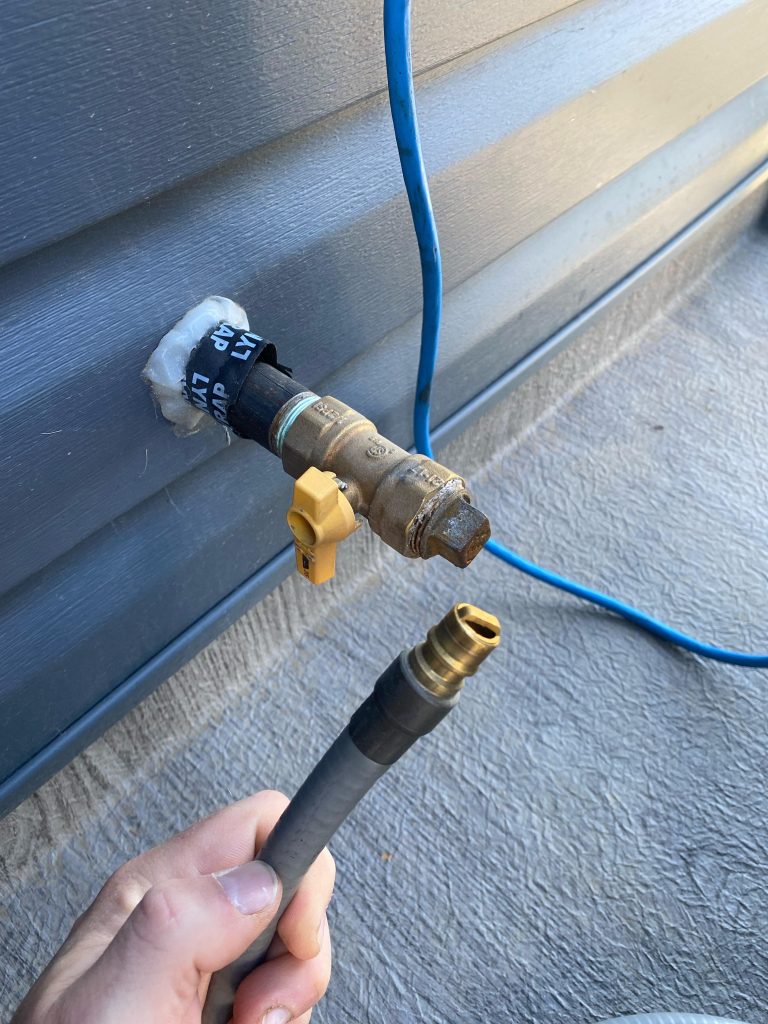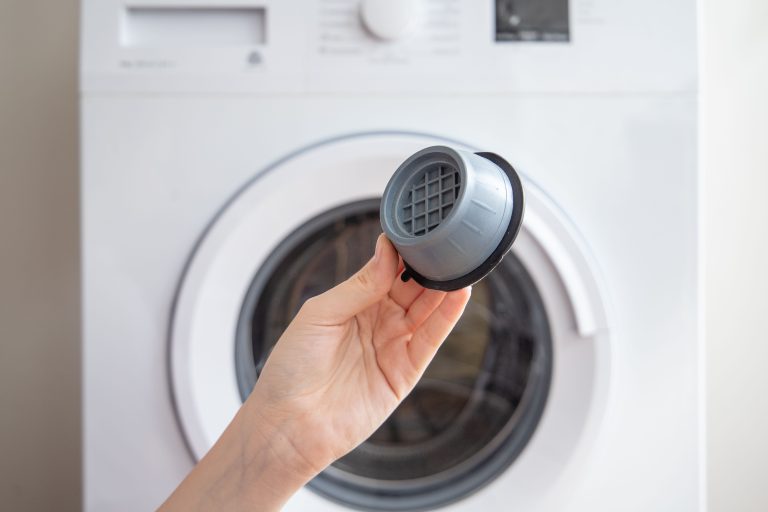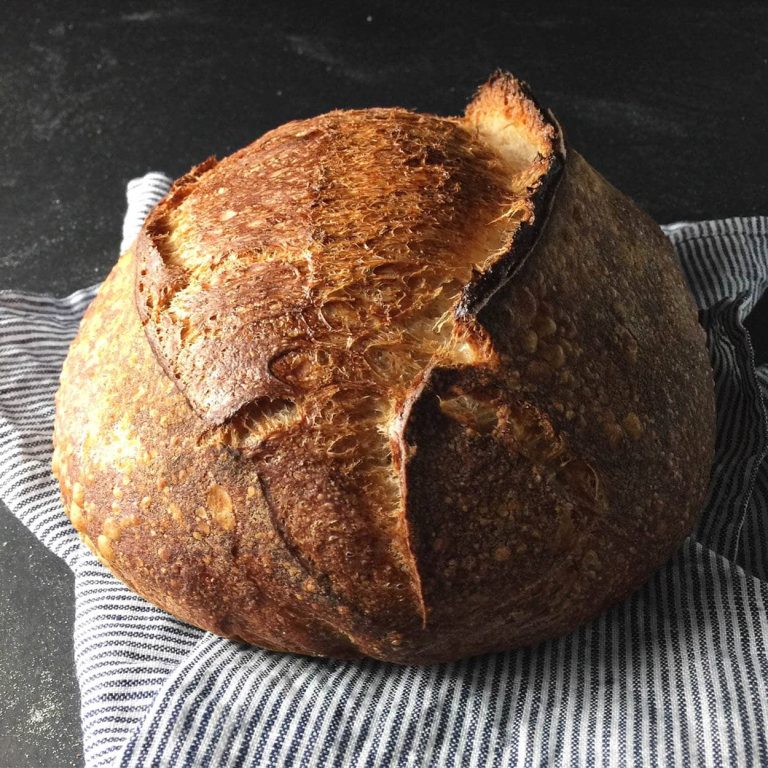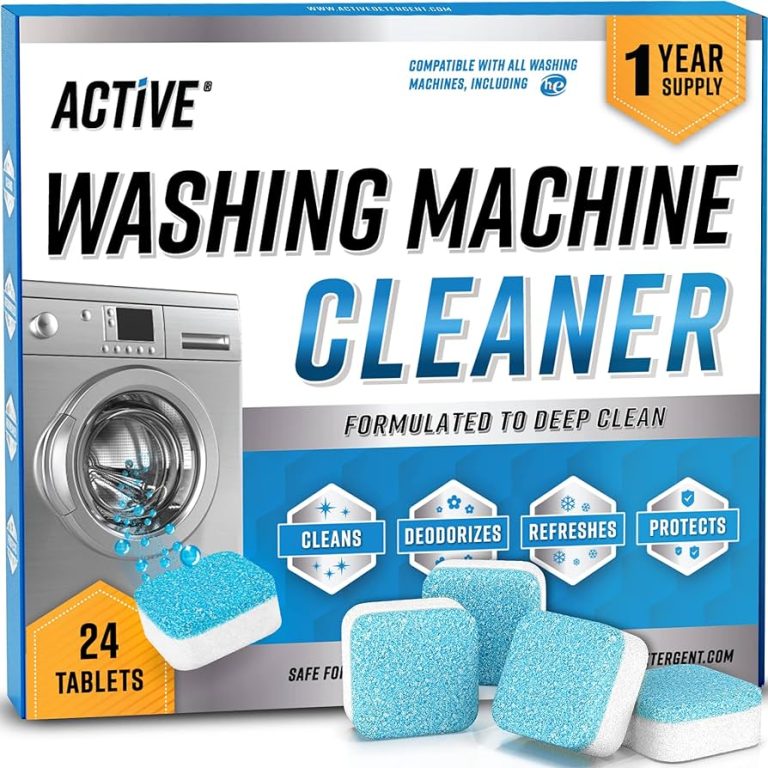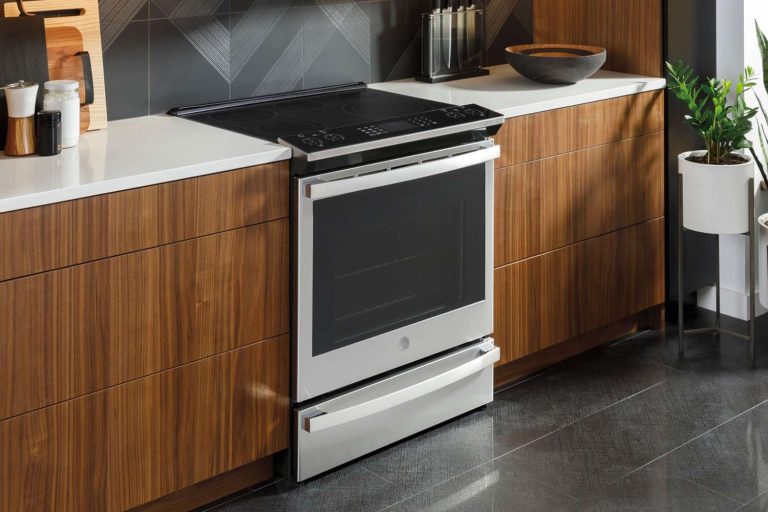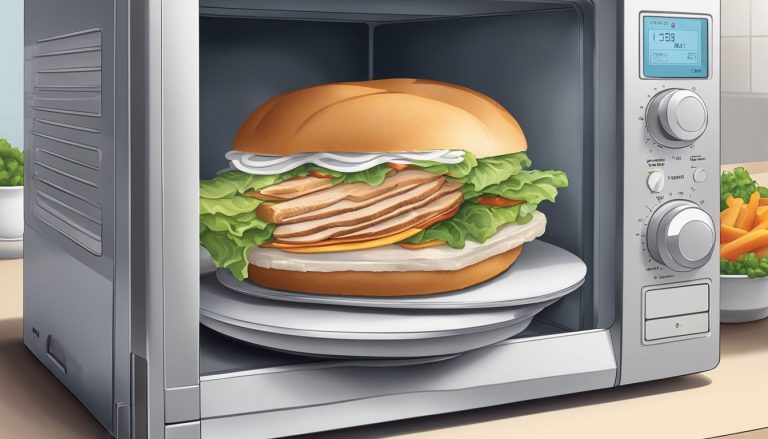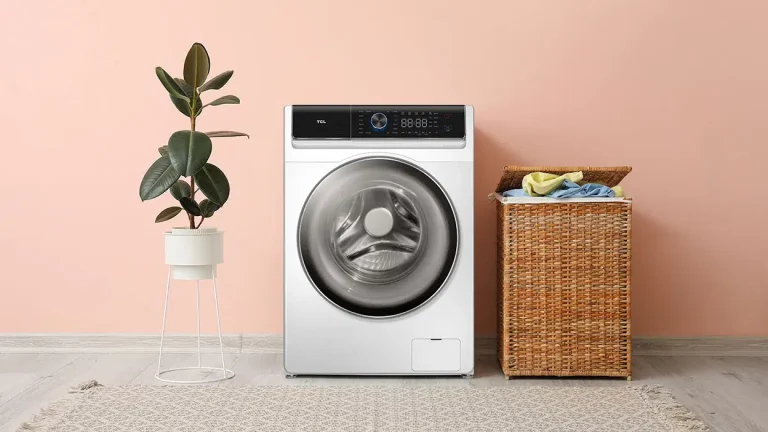A gas grill gas line is an essential component that connects the grill to the propane tank or natural gas line. It allows for easy and safe fuel transfer during grilling sessions.
There are numerous types and sizes of gas grill gas lines available in the market, including the outdoor grill connector, appliance connector, and replacement regulator with hose. These gas lines are sold by major retailers such as Home Depot, Lowe’s, Ace Hardware, and Amazon.
Choosing the right gas line for your grill requires consideration of the grill’s fuel type, size, and the distance between the grill and the fuel source. An expert in gas grill gas lines can help simplify the selection process and ensure a smooth and safe grilling experience.
Credit: www.reddit.com
Types Of Gas Grill Gas Lines
Gas grills come with different types of gas lines, including outdoor grill connectors and appliance connectors, with varying lengths from 2 to 6 feet. These gas lines are essential to safely and effectively run gas grills and are available at various retailers such as Walmart, Lowe’s, and Ace Hardware.
Types of Gas Grill Gas Lines When it comes to Gas Grill Gas Lines, there are primarily two types: Natural Gas Lines and Propane Gas Lines. Both have their unique properties that make them suitable for different purposes. In this article, we will discuss each type in detail and compare them to help you make an informed decision.Natural Gas Lines
Natural Gas is an affordable and readily available option for grilling enthusiasts who want to avoid the hassle of refill and monitoring the level of the propane tank. Natural Gas usually comes from a pipeline that is connected to your home. Connecting it to the grill requires a specialized hose that is different from the propane hose. Natural Gas lines are convenient, but you have to keep in mind that they are not portable. It means you cannot take your grill to a picnic or tailgate party. If you plan to use natural gas for grilling, make sure you have a permanent gas line at your home and hire a professional to install it.Propane Gas Lines
Propane Gas is easy to use and convenient for people who enjoy grilling outdoors. It comes in portable tanks of different sizes that you can refill or exchange at a local gas station or hardware store. Propane Gas lines have a regulator that controls the flow of gas, ensuring the safety and efficiency of your grill. Propane Gas grills are portable, meaning you can take them on camping trips, picnics, or tailgate parties. Because the propane tank is separate, you can move your grill around your backyard or patio to find the ideal spot for grilling.Comparison Between Natural Gas And Propane Gas Lines
Here is a quick comparison chart between Natural Gas and Propane Gas Lines: | Features | Natural Gas Lines | Propane Gas Lines | | — | — | — | |Cost | Cheaper in the long run | Cheaper initial cost | | Convenience | No need to refill | Portable tanks | | Installation | Professional installation required | DIY installation | | Portability | Not portable | Portable | | Availability | Depends on gas pipeline infrastructure in your area | Readily available | Conclusion Both Natural Gas and Propane Gas lines have their unique properties that make them suitable for different grilling needs. Before choosing one, consider your lifestyle, budget, and availability in your area. Whatever you choose, remember to follow all safety guidelines and regulations for grilling with gas.Materials Used In Gas Grill Gas Lines
Gas grill gas lines are typically made of stainless steel or rubber. These materials are chosen for their durability and resistance to heat and corrosion, ensuring safe and reliable gas flow to the grill burners.
When it comes to gas grills, the gas line is an important component that supplies gas to the grill burners. There are several types of materials used in gas grill gas lines, including stainless steel, rubber, and plastic. Each of these materials has its own advantages and disadvantages, and the type of gas line you choose will depend on your personal preferences, budget, and requirements.Stainless Steel Gas Lines
Stainless steel gas lines are a popular choice for gas grills due to their durability and resistance to corrosion and heat. They can handle high pressure and are less likely to kink or crack. Plus, they are relatively easy to install and maintain, and they are long-lasting.Rubber Gas Lines
Rubber gas lines are another popular option for gas grills as they are flexible, affordable and easy-to-handle. Rubber gas lines are suitable for low to medium pressure gas applications. They can be prone to wear and tear over time, so it’s important to inspect them regularly and replace them when necessary.Plastic Gas Lines
Plastic gas lines are the most affordable option, but they have some limitations. Plastic gas lines are suitable for low pressure gas applications only. They are not as durable as stainless steel or rubber gas lines. Plastic lines may not be able to handle high temperatures and sunlight, but they still provide an economical way to supply gas to a grill burner. Overall, when choosing the right gas line for your grill, it’s important to consider the type of gas, pressure, and the environmental conditions it will be exposed to. Additionally, it is important to inspect your gas line regularly to ensure that it is in good condition and replace it if necessary.Takeaways
- Stainless steel gas lines are durable and resist corrosion and heat.
- Rubber gas lines are flexible and affordable, but may wear down over time.
- Plastic gas lines are the most economical option suitable for low pressure gas applications.
- Choose the gas line based on the type of gas and pressure your grill needs.
- Inspect your gas line regularly to maintain it in good condition.
Choosing The Right Gas Line For Your Grill
Choosing the right gas line for your grill may not seem like a big deal, but it can have a significant impact on the performance and safety of your grill. In this section, we’ll dive into some important factors to consider when choosing a gas line for your grill, including sizing, connectors, and fittings.
Factors To Consider When Choosing A Gas Line
Before you start shopping for a gas line for your grill, there are some important factors to keep in mind. Here are a few key considerations:
- Gas type: One of the most important factors to consider is the type of gas your grill uses. Most grills use either propane or natural gas, so you’ll need to choose a gas line that’s compatible with your grill’s fuel source.
- Length: You’ll need to measure the distance between your gas source (either a gas line or propane tank) and your grill to determine the length of gas line you need.
- Pressure: Your gas line will need to be rated for the correct pressure level for your grill. If your gas line has too low of a pressure rating, your grill won’t get hot enough. If the pressure rating is too high, it can damage your grill.
Sizing A Gas Grill Gas Line
One of the most important considerations when choosing a gas line for your grill is sizing. Your gas line needs to be the right size to allow for proper fuel flow to your grill. Here’s how to determine the right size gas line for your grill:
| Burner Size (BTUs) | Gas Line Size (Inches) |
|---|---|
| 0-10,000 | 3/8 |
| 10,001-20,000 | 1/2 |
| 20,001-30,000 | 5/8 |
| 30,001-55,000 | 3/4 |
| 55,001-100,000 | 1 |
Gas Line Connectors And Fittings
When it comes to gas line connectors and fittings, it’s important to choose high-quality, durable components. Here are a few tips to keep in mind when shopping for gas line connectors and fittings:
- Material: Choose connectors and fittings that are made with high-quality materials, such as brass or stainless steel. These materials are less likely to corrode and can withstand high temperatures.
- Type: There are a few different types of connectors and fittings to choose from, including flare fittings and compression fittings. Flare fittings are more common, but compression fittings can be easier to install and are less likely to leak.
- Size: Make sure the connectors and fittings you choose are compatible with the size of your gas line.
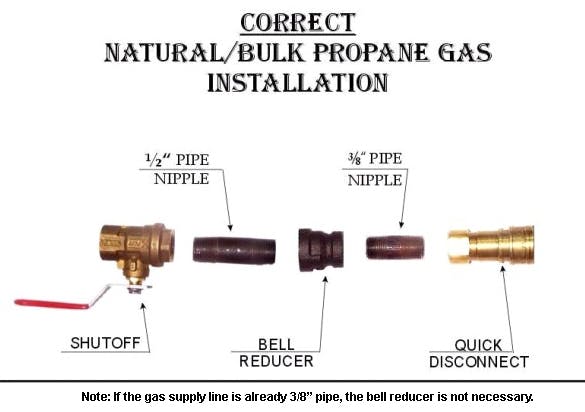
Credit: www.weber.com
Maintaining Your Gas Grill Gas Line
Maintaining your gas grill gas line is crucial to ensure safety and proper functioning of your grill. Regularly check for leaks, clean the gas line and replace any damaged or worn out parts to avoid any mishaps.
Why Maintenance Is Important
Regular maintenance of your gas grill gas line is important to ensure safety and optimal performance of your grill. Over time, the gas line can accumulate debris, grease and rust which can clog the gas flow and cause dangerous gas leaks. Also, gas lines can become brittle and develop cracks, leading to gas leaks. Therefore, it is important to perform periodic maintenance to avoid these potential hazards.How To Clean Your Gas Line
Cleaning your gas line is a simple process that can be done in a few steps. First, turn off the gas supply valve and remove the gas line from the grill. Using a cloth or brush, gently clean the exterior of the gas line to remove any debris, grease or dust. Then, use a clean cloth to wipe the interior of the gas line and remove any residual rust or grease. Once the gas line is cleaned, reattach it to the grill.Periodic Inspection And Testing
In addition to cleaning, it is also important to perform periodic inspections and testing of your gas line. Check the gas line for signs of wear and tear such as cracks or corrosion. Also, check for gas leaks by spraying a soapy water solution on the gas line and valves. If bubbles appear, it indicates a gas leak and the gas line needs to be repaired or replaced. Be sure to perform these inspections and tests regularly to ensure the safety of your gas line and avoid costly repairs in the future. In conclusion, maintaining your gas grill gas line is important for optimal performance and safety. By following these simple steps of cleaning, inspecting and testing, you can ensure that your gas line is in good condition and working properly.Troubleshooting Gas Grill Gas Line Problems
Gas grill gas line problems can cause issues in your grilling experience, but they can be easily solved. Check the gas hose for any damage, inspect the tank valve and regulator for issues, and make sure all connections are secure to troubleshoot gas grill gas line problems.
Are you experiencing problems with your gas grill gas line? If your grill isn’t heating up properly or has a weak flame, there could be a problem with the gas line. Here are some common gas line problems, the symptoms and causes of these issues, as well as how to troubleshoot them.Common Gas Line Problems
| Problem | Cause |
|---|---|
| Low flame or no flame | Blockage in the gas line, low gas flow, or a faulty regulator |
| Gas smell | A leak in the gas line or loose connections |
| Hissing noise | A leak in the gas line or a damaged burner |
| Yellow or orange flame | Debris or grease buildup on the burner or a clogged air shutter valve |
Symptoms And Causes Of Gas Line Issues
If your gas grill isn’t working as it should, it could be due to a problem in the gas line. Here are the symptoms and causes of common gas line issues:- Low flame or no flame: If your grill is not producing enough heat or has no flame, it could be due to a blockage in the gas line, low gas flow, or a faulty regulator.
- Gas smell: If you smell gas near your grill, it could mean there is a leak in the gas line or loose connections.
- Hissing noise: If you hear a hissing noise coming from your grill, it could be due to a leak in the gas line or a damaged burner.
- Yellow or orange flame: If the flame in your grill is yellow or orange instead of blue, it could be because of debris or grease buildup on the burner or a clogged air shutter valve.
How To Troubleshoot Gas Line Problems
If you’re experiencing any of these problems with your gas grill gas line, try these troubleshooting tips:- Low flame or no flame: Check for blockages in the gas line and clean the burner. If the problem persists, check the regulator to see if it needs to be replaced.
- Gas smell: Turn off the gas supply and check for leaks. Tighten any loose connections and replace any damaged hoses or fittings.
- Hissing noise: Turn off the gas supply immediately and check for leaks. Replace any damaged hoses or fittings.
- Yellow or orange flame: Clean the burner and the air shutter valve. If the problem persists, it could be due to a faulty regulator or damaged gas line.
Gas Grill Gas Line Safety
Ensure the safety of your gas grill by regularly checking its gas line for leaks, damage or corrosion. Proper maintenance and inspection can prevent accidents and prolong the lifespan of your gas grill. Consider purchasing a high-quality outdoor grill connector to ensure secure and safe gas supply.
Gas grill gas lines are an essential component in any outdoor cooking setup, providing the fuel needed to fire up the grill and cook a delicious meal. However, these gas lines can pose a serious safety risk if not properly maintained and used. In this post, we’ll cover some gas grill safety tips, how to prevent gas leaks, and what to do if you smell gas.Gas Grill Safety Tips
To ensure the safety of yourself and those around you, it’s important to follow some basic gas grill safety tips:- Always read and follow the manufacturer’s instructions for your gas grill.
- Keep your grill at least 10 feet away from your house or any other combustible structures.
- Never leave your grill unattended while it’s in use.
- Keep a fire extinguisher handy in case of an emergency.
- Check your gas grill regularly for any signs of corrosion or damage.
Preventing Gas Leaks
One of the biggest safety concerns with gas grill gas lines is the potential for gas leaks. These leaks can be caused by a variety of factors, including age, wear and tear, and improper installation. To prevent gas leaks:- Inspect your gas grill’s gas line regularly for any signs of damage or wear.
- Replace your gas line if it’s cracked, frayed, or otherwise damaged.
- Make sure your gas line is properly connected and tightened.
- Consider installing a gas leak detector to warn you of any potential gas leaks.
What To Do If You Smell Gas
If you smell gas while using your gas grill, it’s important to act quickly to prevent a potentially dangerous situation. Follow these steps:- Turn off the gas supply to your grill.
- Call your gas company or a licensed professional to come and inspect your grill for any gas leaks.
- Don’t use your grill or any other gas-powered appliances until the source of the gas leak has been identified and fixed.
- If you’re outside and the smell of gas is strong, move away from the area immediately and call your gas company or emergency services.

Credit: www.forbes.com
Frequently Asked Questions On Gas Grill Gas Line
What Size Gas Line Do I Need For My Gas Grill?
The size of the gas line for your gas grill depends on the BTUs of the grill and the length of the gas line. It’s recommended to have a 1/2 inch gas line for a grill with over 60,000 BTUs, and a 3/8 inch gas line for a grill with less than 60,000 BTUs.
It’s best to consult a professional to ensure proper sizing and installation.
How Do You Hook Up A Gas Grill To A Gas Line?
To hook up a gas grill to a gas line, follow these steps: 1. Turn off the gas supply and disconnect the propane tank from the grill. 2. Attach a flexible gas hose to the gas line and to the grill’s regulator valve.
3. Apply a soapy water solution to check for gas leaks. 4. Turn on the gas supply and test the grill’s burners for proper ignition. 5. Adjust the grill’s burners as necessary and start grilling.
Should I Run A Natural Gas Line For My Grill?
Yes, running a natural gas line for your grill is a good option if you plan to use your grill frequently. It offers convenience and cost savings as you won’t need to refill propane tanks. However, it may require professional installation and can limit the location of your grill.
What Size Pipe Do I Need To Run A Gas Line?
The size of the pipe needed to run a gas line depends on the BTU output of the appliances being connected and the distance of the run. Generally, a 1/2-inch pipe is used for a 10-foot distance that generates up to 40,000 BTUs, while a 3/4-inch pipe is used for lengths up to 80 feet or output of up to 200,000 BTUs.
It’s recommended to consult a professional plumber to determine the appropriate size for your specific needs.
Conclusion
Choosing the right gas line for your gas grill is essential for safe and efficient grilling. With so many options available in the market, doing thorough research beforehand can save you time and money in the long run. Make sure to consider factors such as length, material, and compatibility before purchasing an outdoor grill connector or an appliance connector.
Invest in a high-quality gas line that fits your grill’s requirements and enjoy grilling safely with your friends and family.

